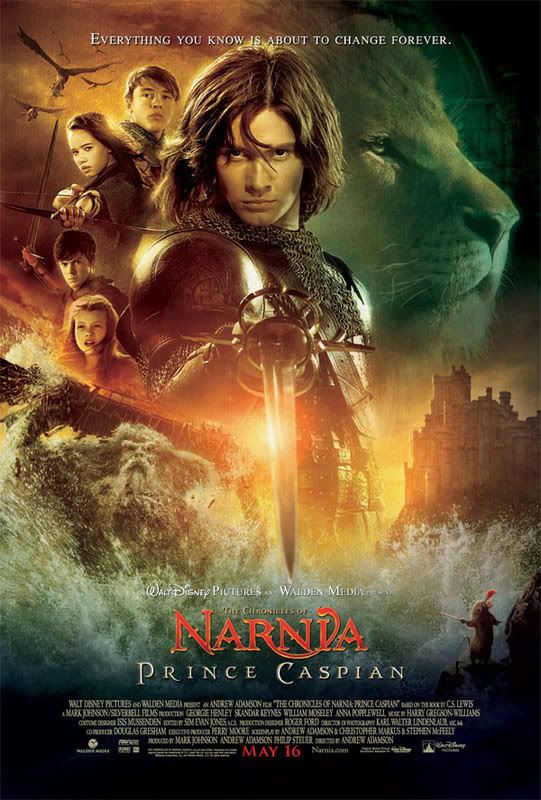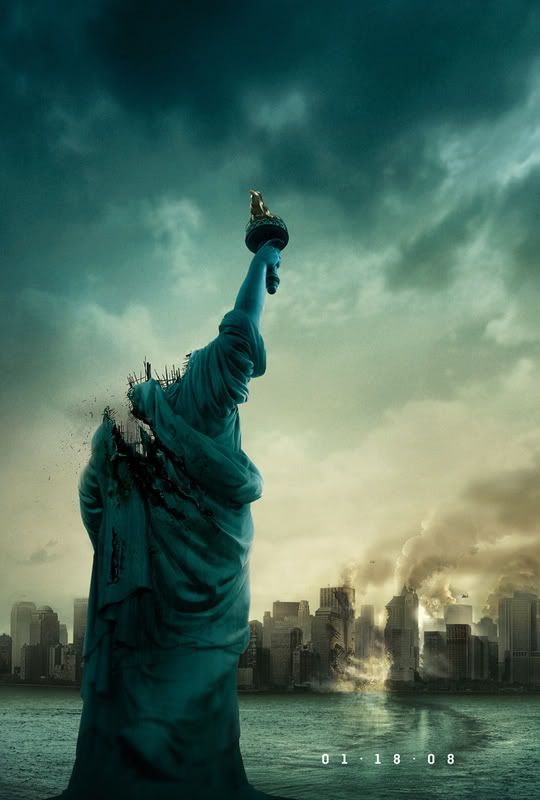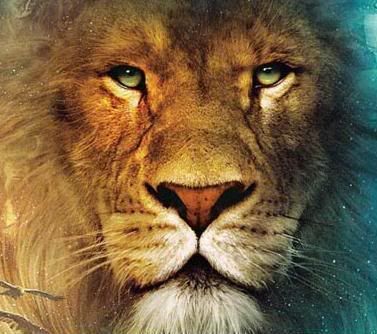With the summer movie season upon us, I figured it was time to remove the Best of 2007 sword that has been dangling over my head for over two months. I have been very slow getting this out for a couple reasons. There was that whole get-married-and-move-across-the-country thing, which was and is wonderfully time-consuming. Equally causing the delay, though, was the overall mediocrity of movies in 2007. There were a few potentially list-worthy movies I wish I had seen (notable exclusions might include
Across the Universe and
Into the Wild), but I still took in all five Best Picture nominees and saw a similar number of movies, my usual assortment of blockbusters and indie flicks.
As I slowly compiled this list, I realized that I could make a legitimate case that NONE of these ten movies would find a place on
last year’s Top Ten. That’s not quite an argument I fully believe, but the mere fact that the case is close enough to be considered speaks volumes about my tepidity toward the movies of 2007. Most years, I have to whittle down fifteen to twenty movies to my final Top Ten. This year, I had a legitimate five or six movies that I wanted to include, then had to reluctantly fill in the holes. Even the top of the list
didn’t feel as grand as in recent years. When I put together my Top Ten of the Decade in a couple years (and don’t think I haven’t started already), 2007 may not be represented at all.
So although I was tempted to leave a big empty spot in the middle of the list, I trudged through and came up with a final cut. Here’s to a better 2008. Without further ado, here (finally) are my Top Ten Movies of 2007. (I guess.)
Honorable Mention:
There Will Be Blood. This may have been the finest crafted film of 2007. Everything about the movie was done phenomenally: directing, acting, music, cinematography...everything. But I didn't
like it at all. This will be a prime example used when I divulge my newly tweaked rating system. On with the show...
10.
Live Free or Die Hard. As the latest in one of my favorite movie series, this one had the inside track to be the year’s best movie. But it still had to deliver, and did so in fine style. Following Bruce Willis’ cue, humor was naturally woven into the movie, not forced like too many movies do. The action was big and physical, even a little over-the-top, but the whole thing was so much fun that it
didn’t matter. This is as good as popcorn flicks get. Best
movie of the year.
9.
The Mist. I
didn’t particularly like this horror movie, which was adapted from a Stephen King novel, but I cannot deny its craftsmanship. It effectively executes staples of the genre such as suspense and things attacking. What separates
Mist from most of its tripe-infested relatives is its psychological side. King has long been a master at invading the human mind in print, but that aspect has not always made the journey to screen. Director and screenwriter Frank
Darabont incisively translates King’s material, adding an edge that is simultaneously fascinating and disturbing. This is NOT a movie I strongly recommend, and please don't show it ANY kids. But I was riveted by its tense dive into the human psyche.
8.
Away From Her. An interesting study of what happens when half of an older couple gets Alzheimer’s. The leads are quite good, and it’s a fascinating observation of love and what one does for it in extreme circumstances. The movie feels like a ridiculously well done educational film, and I mean that as a compliment. It’s not a light movie, and tears may very well flow, but it will make you think about life and love like few other movies will.
7.
Once. To be honest, when I first saw this movie about a street musician who finds his muse, I thought it was okay, a nice indie film propelled by enjoyable indie music. Since then, I’
ve been swayed by numerous friends who have loved it, and by the infectious songs that carry the delightful movie. It’s not a great piece of cinema, but it does avoid the pitfalls that likely would have derailed a mainstream movie. The largely untrained actors mesh well with the movie’s budget-induced style, producing a sweet, watchable story that plays extremely well on DVD.
6.
Atonement. This is a somewhat speculative placement for this love story stretched across class and war. Although I only saw the movie once, I believe that a second viewing, with a few things known, would make the film even more powerful. The typewriter-laced score is the best film music of the year and actually plays a role in the plot as well. The rest of the film’s technical aspects are solid too, particularly a massive and lengthy single shot that reminds of last year’s
Children of Men work. Although the romantic angle struggles at times, once the entirety of the picture is seen, the whole can be appreciated as well as its parts.
5.
The Bourne Ultimatum. While
Live Free or Die Hard is a better movie, this is a better film, the best action-powered one of the year. From the breakneck pace of the opening scene to the series’ trademark fight and chase scenes, the third installment of
Bourne is nearly as good as the original. Strong supporting turns from veterans like David
Straithairn and Joan Allen buttress Damon’s
underappreciated work and help shape the solid plot that plays the role of backseat driver, pushing the movie along via the various exhilarating action scenes. This probably won’t be the end of the
Bourne saga, but it would be a worthy close to a very good trilogy.
4.
Sunshine. This movie was almost completely ignored, which is an utter shame, because it is the best sci-
fi movie since 2002’s
Minority Report. It’s the story of an eight-person crew on a dangerous space mission (is there any other kind?) to reignite the sun, and the various physical and mental effects of their journey. The characters are well-rounded enough to be very likable and engaging, and a pervasive element of mystery drives the movie forward for its entirety. If you want a good ride of a DVD, you won’t find much better from last year.
3.
Ratatouille. Although it is not an action movie in the vein of
The Incredibles, this latest
Pixar accomplishment is an amazingly kinetic movie. Focusing on the adventures of a rat named Remy with a culinary flair, the movie traverses the French countryside and cityscape. from Remy’s perspective.
Pixar’s trademark sense of humor and morality is everywhere, as is a European flavor. The movie expertly incorporates clever dialogue, slapstick comedy, and visual jokes that take advantage of the gorgeous animation.
Pixar keeps setting the bar extremely high, but they keep also clearing it easily.
Ratatouille might not be quite as kid-friendly as some of their movies, and it's almost boring to put it so high, but it
is that good.
2.
No Country for Old Men. I went back and forth on the order of these top two for a long time. Ultimately it settled here, even though this is the best made film of the year, deserving of its Best Picture Oscar, and may have a better chance of making a best of the 2000s list. For an old-fashioned, slow motion chase movie set along the Texas-Mexico border, the movie possesses perfect pacing and sublime acting performances. The characters, both primary and secondary, are fantastic. Aside from the nebulous finale, which
didn’t bother me that much, the only drawback is that while the film is enjoyable, it
isn’t easy to like. It lacks a soul, despite Tommy Lee Jones’ best efforts. That’s what sets it apart from…
1.
The Kingdom. While it may not be the year’s best-made film, I liked it more than any other, and that affinity pushed this story of Middle East conflict to the top of my list. I love the way that it combines white-knuckle action with social exploration and human drama. Played by familiar actors in unique roles, the characters are much deeper than most, with real emotions pouring out of protagonists, antagonists, and those in between.
Kingdom raises many questions and answers enough of them to result in a satisfying movie experience. The end is not neat or convenient, but still manages to leave a small smile on your face, and the subtle music captures the story’s poignancy in hauntingly fine style, allowing the film to linger long after the credits roll.
A few miscellaneous awards...
Worst Movie: Transformers. I say this with no exaggeration: Transformers is the worst movie that I’ve ever seen in a theater, a movie by which all future bad movies will be measured. From the melodramatic opening voiceover, it was sliding down a slippery slope to failure. Not even impressive special effects could salvage the catastrophic script.
Batman & Robin Award (Worst Sequel): Pirates of the Caribbean 3: At World’s End. At least the series is over now…right? Please?
Unbreakable Award (Best Trailer): I Am Legend. This was the definition of a fantastic trailer. It showed the situation the main character was in, but didn’t explain how he got to be there or what happened next, piquing interest without revealing ANYTHING. Well done, and it would ordinarily be the best trailer of the year, were it not for…1-18-08, which elevated the trailer art form to a new high. Too bad the movie wasn't that great.
Catch Me If You Can Award (Best Opening Credits): The Kingdom, where superb and necessary background information was provided in entertaining fashion through maps and timelines. They properly set the stage for a great movie.
Snake Eyes Award (movie that took a dive in the last act): 3:10 to Yuma certainly could have won this prize, with its ridiculously improbable shootout of an ending. But even a decent close would not have made it a great movie. I Am Legend, on the other hand, could easily have been one of the year’s five best had its third act measured up to its previous two.
The Interpreter Award (movie that did the least with the most pedigree): Charlie Wilson’s War. Somehow a movie written by Aaron Sorkin, starring Tom Hanks and Julia Roberts, and featuring a stellar supporting turn by Phillip Seymour Hoffman, all as larger than life characters, failed to engage much at all. I still haven't figured this one out.
So there it is, finally.
Iron Man and
Prince Caspian have 2008 off to a good start. Let's hope it continues.








